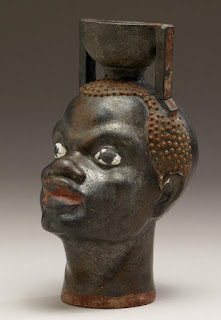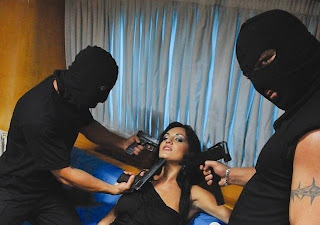Macedonia: what the Greek government tries to hide
Wednesday, April 27, 1994 - 10:00
By Michael Karadjis
When the former Yugoslav Republic of Macedonia declared independence in 1991, it appeared to most a simple matter of self-determination. A referendum endorsed it, and the majority of the people in the state have long called themselves Macedonian. Related minorities also exist within the Greek and Bulgarian sections of the Macedonian territorial region.
Yet the depth of feeling within the Greek and Macedonian communities over the use of the name "Macedonia" has left many people completely confused.
The propaganda that Greeks as a whole are "offended" by the Macedonians' use of an ancient Greek name is so intense that many now take it for granted. Yet for over 40 years Greece made little issue of the name of the republic and had a consul there (it still does!), while Greek students studied at Skopje University until a few years ago. In Australia, Greeks worked with Macedonians. The Greek Herald even had a regular "Macedonian" page in the (Slav) Macedonian language until a couple of years ago.
While anyone can discuss names, flags and symbols, the determination of Greece to force Macedonia to change these things masks far deeper issues. The Greek government claims the republic aims to build a "Greater Macedonia" by taking over the Greek and Bulgarian sections of Macedonia (Greek Macedonia being populated overwhelmingly by Greeks). The use of the name Macedonia is said to be a mask for this.
But in case anyone really thought this state of 2 million people and 10,000 troops was about to attack Greece with its 10 million people and huge, well-equipped armed forces, the Macedonian government inserted into its constitution in 1991 an article stating that it has no territorial claims on any of its neighbours. It has even offered Greece a treaty including internationally guaranteed borders.
The real problem is that if the new republic is recognised with the name Macedonia, Greece will be under pressure to recognise the Macedonian minority within Greece, whose existence it denies. These people, denied elementary rights in Greece (and Bulgaria), would be encouraged to struggle against their oppression. And it would lay open a century of oppression and expulsion of these people by various right-wing Greek regimes.
According to the Greek government, the area and the name Macedonia have been Greek since the time of Alexander the Great, and it was not until 1945 that the Yugoslav Communist leader Tito baptised as Macedonian the Slavic-speaking people in Yugoslav Macedonia in order to push territorial claims on Greece's Macedonia province. The "insistence" of the Macedonians on keeping that name represents the theft of Greek history and culture.
This is all complete fiction. With the entry of Latin-speakers during the Roman Empire, Slavs in the 7th century AD and Turks and Albanians in the 14th century, Macedonia became a mixed region. Greeks were a minority, and they did not see themselves alone as descendants of the ancient Macedonians. Like other Greeks, they called themselves "Romaioi."
With the rise of nationalism in the 19th century, Greeks, Serbs and Bulgarians revolted against Ottoman Turkish rule and set up national states. By the 20th century, only Albania, Macedonia and Thrace were still in Ottoman hands. While the people in these regions began revolts against Ottoman rule, Greece, Serbia and Bulgaria all had ambitions of seizing chunks of territory, and to give cover for this they invented conflicting myths about the ethnic make-up of the region.
Who really lived there? According to the best census, that of Hilme Pasha in 1904, the population of Macedonia was about 3 million. Muslims made up about half of this number. As in other censuses, Muslims were not divided into ethnic groups, but they included Turks, Albanians and Muslim Slavs.
Other censuses divided the Christian population according to which church they followed (the Greek, Bulgarian or Serbian wing of the eastern orthodox church), but that of Hilme shows both religion and language. This is a crucial difference, because, since the Ottomans had suppressed the 800-year old Macedonian Orthodox church in 1767, the Slavic population of Macedonia used the Greek or Bulgarian Orthodox church.
According to this census, there were about 900,000 Slavic speakers, nearly a third of the population, and about 300,000 Greek speakers, a tenth of the population. There were smaller populations of Serbs, Vlachs, Roms (Gypsies) and Jews.
Greek propaganda made Greeks out of 300,000 Slavs belonging to the Greek church, while Bulgarian propaganda classed these people, plus the 600,000 Slavs in the Bulgarian church, as Bulgarians. Both denied the existence of a separate Macedonian people, and the Ottoman rulers, faced with mass revolt in Macedonia, agreed.
However, Macedonian national consciousness had begun to rise in the 1840s, with Macedonian schools, churches, printing presses and literature appearing, along with the rise of the "Macedonists", who emphasised their differences from other Slavic peoples. In 1893, the Internal Macedonian Revolutionary Organisation was set up to fight Turkish rule and establish a Macedonian state, work sabotaged by the "Supremists", a Bulgarian-based group which aimed to annex Macedonia to Bulgaria.
Macedonians clearly saw themselves as a separate people. Since Turks, Albanians, Greeks, Serbs and Bulgarians in Macedonia identified with these outside states, it was natural for the local population, who lived only in Macedonia and identified with none of these states, to call themselves Macedonian, and there is abundant evidence, including from Greek sources, that they did so.
Following the crushing of a mass revolt by Macedonians against the Ottomans in 1903, Greek and Bulgarian forces intervened in Macedonia. In 1912-13, Greece, Bulgaria and Serbia attacked this last Ottoman stronghold and carved it up between them. Greece took the southern half, Serbia took 40% and Bulgaria the remaining 10%. These divisions had no relation to the ethnic make-up of the parts. Some 150,000 Macedonians fled into exile.
Treaties between Greece, Turkey and Bulgaria in the early 1920s, forced 2.5 million people across borders. Most of the Greek and Christian population were driven out of Turkey, and the same happened to the Turkish and Muslim population of Greece. 638,000 Greek refugees were settled in Macedonia, making Greeks the majority of the population in Greek Macedonia for the first time.
Hundreds of thousands of (Slav) Macedonians remained in Greek Macedonia, but many tens of thousands were labelled "Bulgarians" and expelled to Bulgaria. All personal and place names were changed.
There was a brief break from this policy in 1926 when, in the face of Serbian and Bulgarian claims to own this minority, the Greek government officially recognised the Macedonians as distinct from Serbs and Bulgarians and even produced schoolbooks in their language. The following year, it was back to the business of expulsion and Hellenisation. Only the young Communist Party opposed these policies.
Repression was stepped up in 1936, when the fascist dictator Metaxas seized power, outlawed all use of the Macedonian language and drove massive numbers into exile. Similar policies were carried out by Bulgaria and the Serb-dominated Yugoslav monarchy.
When the Nazis occupied Greece in 1941, Macedonians joined the resistance movement EAM, led by the Greek Communist Party (KKE). They had their own section of EAM, the Slav Macedonian People's Liberation Front (SNOF), and were represented in the resistance government.
In Yugoslavia, the Macedonians also joined the anti-Nazi resistance led by the Communist Party. Far from feeling "Bulgarian" as some would have us believe, Macedonians massively resisted the occupation by the pro-Nazi Bulgarian regime, and paid a heavy price in blood.
When the Greek right was returned to power on British tanks in 1945, its terror against the left included terror against the Macedonians, thousands more being forced over the Yugoslav border. When the KKE again took up arms in 1946, the National Liberation Front (NOF), the successor of SNOF, joined forces. Article 1 of NOF's program called for "the national rights of the Macedonian people within a democratic Greece".
When the left was finally defeated in 1949, thousands were forced into exile or internal gulags. Many more tens of thousands of Macedonians were driven out. In addition to fighters, 28,000 Greek and Macedonian child refugees fled. While Greek leftists have been allowed to return, ethnic Macedonian refugees and their children have not, and their property has been seized using openly discriminatory laws.
This continual forced displacement of the Macedonian people plus policies of forced Hellenisation drastically reduce the number of people identifying as ethnic Macedonians in Greece. Yet even in days of darkest repression in 1951, 41,000 people identified as Slavophones in the last Greek survey to include this category. Estimates today range from 50,000 to 300,000.
According to the Greek government, these people don't exist, but there are a few people living near the border who, alongside Greek, also speak a Slavic "dialect" for purposes of trade, just as Greeks in Rhodes learn Scandinavian languages to deal with tourists!
The minority is denied elementary rights to use its language in print or radio, to learn it at school, use it in churches or use it in any other form aside from speaking it. Refugees are still not allowed to return, an application to set up a cultural centre was turned down, and even folk festivals have been broken up by cops.
In Yugoslavia, unlike Greece, the wartime resistance, led by the Yugoslav CP, took power in 1945. The new Yugoslavia was a federation of six republics, one of which was the Yugoslav Republic of Macedonia. For the first time the Macedonians had a state where their culture could flourish. Faced with repression elsewhere, they are naturally determined to defend this state, their name and their identity. But what of the apparent depth of feeling of many Greeks over the issue?
The formation of national states and the intervention of imperialism over the last century have led to the massive displacement of peoples. The states formed have been in borders that did not necessarily conform to areas of ethnic occupation, but rather to who was the strongest.
Greeks, like others, have lost out in this process. First there was the expulsion of some 2 million Greeks from Turkey to Greece or the USSR in the early 1920s due to the clash between Greek nationalism and emergent Turkish nationalism. The Pontian Greeks who fled to the USSR were later again displaced by Stalin. More than 100,000 Greeks were driven out of Turkey in pogroms in the 1950s, and in 1974 200,000 Greek Cypriots were driven from their homes by the Turkish invasion, which followed a Greek-backed coup on the island.
In this context the Greek government is pushing the line that once again hundreds of thousands of Greek people will be driven out by "Slavic hordes" from the north, backed by Turkey, Russia, the US or anyone the propagandists choose. This Slavic threat from the north was a key part of NATO propaganda during the Cold War.
Not only is this a fantasy, but the Greek state has been responsible for the catastrophe of another people, in the same way as Greek communities have suffered in other areas. From their own experience, Greeks should understand why the Macedonians are so determined to keep their name and identity.
Some Greeks propose a name such as "Northern Macedonia" as a compromise, but the problem must be seen in the context of who is oppressing whom. What the Greek rulers are saying is: "We have driven you out by the tens of thousands throughout the century, we have forced you to change your names, we have denied you elementary national rights and continue to do so, and now we demand that you change your name as well." Naturally enough, there hasn't been much of a response.



